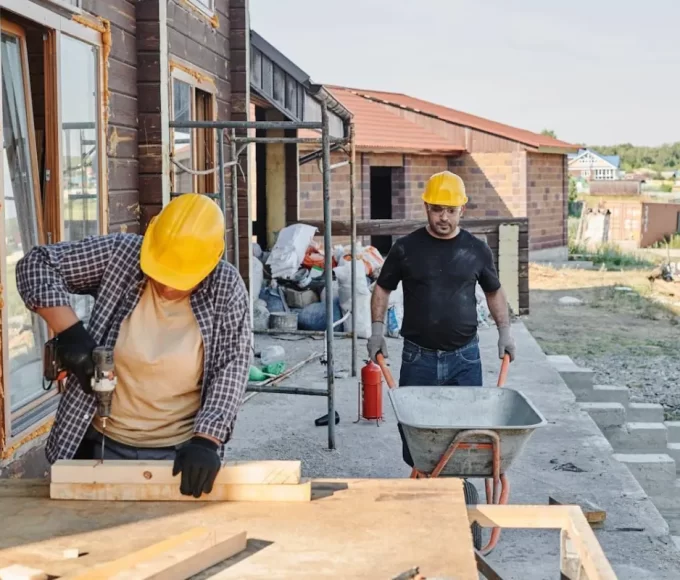Owning a home is a significant investment, whether you live in it or lease it out. However, when leasing your home, it’s crucial to find reliable tenants who will take care of your property and fulfill their lease obligations. The ideal tenants are responsible, respectful, and financially stable. Finding such tenants requires several steps, especially in a city like Washington, D.C., where the cost of living is over 35% higher than the national average. Your home really needs to stand out to convince prospective tenants to pay a high rent.
This guide will help you navigate the process and find the best tenants for your home.
1. Hire a Reliable Realtor or Real Estate Company
In a competitive market like D.C., hiring a reputable realtor or real estate company can make all the difference. These professionals have the expertise to screen potential tenants, handle paperwork, and market your property effectively. They can provide valuable insights into local rental trends, helping you set a competitive price and attract high-quality tenants.
Without the assistance of a realtor or real estate company, you might struggle with the complexities of the rental process. You could miss out on qualified tenants or fall into legal pitfalls due to incomplete or incorrect lease agreements. Real estate professionals, such as those at Nomadic Real Estate DC, act as a buffer, ensuring that all transactions are smooth and legally sound.
2. Thoroughly Screen Potential Tenants
Screening is a critical step in finding the best tenants. Conducting background checks, verifying employment, and checking references from previous landlords are essential components of this process. These steps help you assess whether potential tenants are financially stable and have a history of being responsible renters.
Look for tenants with a stable income that is at least three times the monthly rent, a good rental history with no prior evictions, and a clean criminal background. These criteria can help you identify individuals who are likely to pay rent on time and take care of your property.
3. Set Clear and Fair Rental Criteria
Defining your rental criteria upfront can save you time and effort, helping you attract the right tenants and deter those who might not meet your standards. Consider factors such as income requirements, credit score minimums, and pet policies. Be transparent about your expectations from the beginning to avoid misunderstandings later on.
For example, you might require tenants to have a credit score of at least 650 and an income that is three times the rent. Clearly stating these requirements in your rental listing ensures that potential tenants understand what you are looking for, reducing the number of unsuitable applications.
4. Market Your Property Effectively
Effective marketing is crucial to attracting a wide range of potential tenants. Utilize multiple platforms such as online rental sites, social media, and local classifieds to advertise your rental. High-quality photos and detailed descriptions of the property can make a great difference.
Highlight the best features of your property, such as recent renovations, a spacious backyard, or proximity to public transportation, schools, and shopping centers. The more appealing your listing, the more likely you are to attract serious inquiries from potential tenants.
5. Offer Competitive Rent and Lease Terms
Setting a competitive rental price is vital to attracting quality tenants. Research local rental rates to ensure your price is in line with similar properties in your area.
Offering flexible lease terms can also make your property more attractive. For example, providing options for month-to-month or six-month leases can appeal to tenants who are looking for short-term arrangements. Flexibility in lease terms can help you accommodate a broader range of tenants and fill vacancies more quickly.
6. Maintain Open and Clear Communication
Effective communication is key to establishing a good landlord-tenant relationship from the start. When potential tenants reach out with inquiries, respond promptly and provide thorough answers to their questions. Clear communication about the application process, rental terms, and expectations helps build trust and shows that you are a responsible and attentive landlord.
When meeting potential tenants, be approachable and professional. Discuss any specific concerns they might have and be open to negotiations where possible. Maintaining transparency throughout the process can help prevent misunderstandings and ensure that both parties are on the same page.
7. Prepare Your Home for Tenants
Before showing your home to potential renters, make sure it is in excellent condition. A well-maintained property will attract higher-quality tenants. This includes addressing any maintenance issues, performing necessary repairs, and ensuring the home is clean and presentable.
Consider making small upgrades that can enhance the property’s appeal. Fresh paint, updated fixtures, and clean carpets or flooring can make a big difference. Moreover, ensure that the exterior of the home is well-kept, as curb appeal can significantly impact a tenant’s first impression.
8. Create a Detailed Lease Agreement
A comprehensive lease agreement is crucial for protecting both you and your tenants. Make sure everything from the terms and conditions of the rental arrangement, rent amount, and due dates to security deposit details and policies on late fees and subletting are clearly mentioned in the lease agreement.
It would be best to consult a legal professional to draft your lease agreement, ensuring it complies with local and state laws. A detailed lease agreement helps prevent disputes and provides a clear framework for resolving any issues that may arise during the tenancy.
9. Conduct Regular Inspections
Regular property inspections are essential for maintaining your home and ensuring that tenants are complying with the lease terms. Schedule inspections at least twice a year and provide tenants with adequate notice as required by law. These inspections allow you to identify any maintenance needs early and address potential issues before they become major problems.
During inspections, check for signs of damage, cleanliness, and proper maintenance of appliances and fixtures. Use this opportunity to discuss any concerns with your tenants and remind them of their responsibilities.
10. Build a Good Relationship with Your Tenants
Building a positive relationship with your tenants can lead to longer tenancies and better care for your property. Being approachable and responsive to their needs and concerns fosters a sense of mutual respect and cooperation.
Show appreciation for good tenants by acknowledging their timely rent payments and responsible behavior. Simple gestures, such as sending a thank-you note or a small holiday gift, can go a long way in building goodwill. A positive landlord-tenant relationship can lead to lease renewals and a stable rental income.
Conclusion
Leasing your home can be a rewarding experience when you find reliable and responsible tenants. These steps will not only help protect your investment but also create a positive living environment for your tenants. In a competitive and high-cost market like Washington, D.C., implementing these strategies will help you find and retain the best tenants for your home. By following these guidelines, you can lease your home with ease and confidence.















